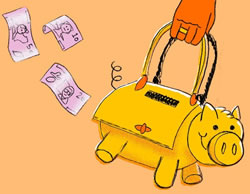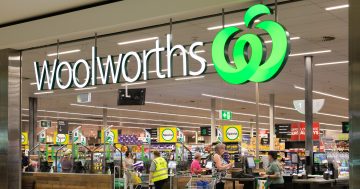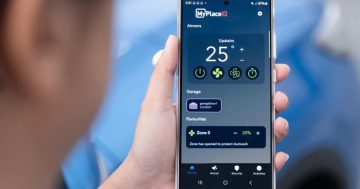Money leaks might be out of our eyesight but they’re not out of our control: Emma Edwards* shares ways to identify and plug them.
 When it comes to tidying up your finances, there’s one key thing to look out for: money leaks.
When it comes to tidying up your finances, there’s one key thing to look out for: money leaks.
Yes, money can leak out of your account without you even realising, and every one of us is at risk.
Money leaks are part of our habits and routines and they’re often the things we wouldn’t expect, which is what makes them hard to spot.
The one big leak we all have in common
Money leaks can vary from person to person, but there’s one big leak that most of us have in common – groceries.
The reason grocery spending can create a catastrophic money leak is because it goes so undetected.
When we’re looking for expenses to cut, we tend to start with the non-essentials, which means our grocery spend gets less attention than the amount we’re spending on takeaway or entertainment.
How to find out if you’re leaking money on groceries
There’s a simple exercise I get people to do to establish whether they have grocery money leaks, and you can do it yourself right now.
It involves two questions.
‘How many times do you go to the supermarket each month?’ And ‘How much do you spend at the supermarket each month?’
What happens is we use our assumptions about our habits and routines to estimate our answers.
If you go to the supermarket every Saturday morning, you’ll probably say four or five times per month.
If you usually spend around $150 in that weekly shop, you’ll probably estimate your monthly spend at around $600 per month, because there are four Saturdays in a month.
Once you’ve answered those questions, whip out your bank statement or banking app and go through your transactions to see if your estimated spend and visits match up to reality.
If your estimations fall short of reality, you could have a money leak.
Don’t forget to check all your accounts or credit cards, and make sure you’re checking for all supermarket or grocery transactions, not just your main supermarket.
The curse of the ‘top up shop’
More often than not, the money leak isn’t coming from your main grocery shop, but from all the times you pop to the shops for a ‘top up’.
Maybe you forgot an ingredient or you wanted to grab something extra for a meal you’re cooking.
What happens is we go with the intention of grabbing that one thing for a few dollars, and end up spending a lot more.
But, because our intention was only to spend a small amount, we’re disregarding that expense.
We underestimate how much we’re spending at the supermarket
I’ve done this exercise multiple times with my online community and the results are… mind blowing.
Turns out, we’re drastically underestimating how many times we go to the supermarket and how much throughout the month.
One follower found that they’d spent over $15,000 throughout the year at the convenience store near their house, despite doing their main food shop at Aldi.
Another said they thought they went once a week but racked up 12 transactions throughout the month.
Others, confronted by the question, said they were “too scared to look” because they knew their habit of popping out for a mid-afternoon treat, or a browse of any late-night markdowns, would add up to a big leak.
The good news is that once you identify a money leak, you have the opportunity to make substantial savings without the lifestyle sacrifice, because you weren’t aware these expenses existed in the first place.
*Emma Edwards is a finance writer, content creator and founder of The Broke Generation.
This article first appeared at au.finance.yahoo.com











